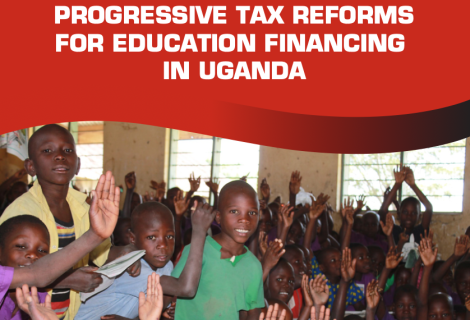
Although education financing in Uganda has increased over the past decade in response to population growth, demand for education, and the need for improved infrastructure and teacher welfare, public expenditure on education as a percentage of Gross Domestic Product has averaged at 2.04% over the last decade. This indicates a relatively low level of financing for education compared to the Uganda's Gross Domestic Product. This low funding level has raised concerns about the adequacy of resources allocated to education in Uganda. Note that the change in financing has been driven by both demand and supply factors, with an emphasis on addressing various challenges and improving the quality of education services.
In Uganda, tax laws are annually amended mainly to increase tax revenue. The major tax amendments evolve around VAT, Income tax, Excise duty, Customs and Non-tax revenues. Despite these amendments, the country has continued to register low revenue collections which cannot sufficiently finance the national budget. A study by Price Water Coopers- Uganda, 2023 mentions that when compared with other EAC member States, Uganda’s revenue-to-GDP ratio stood at 13.9%, Kenya’s was at 17.8% and Rwanda’s at 15.08% as of 2021.
Uganda’s tax system comprises of a mixture of progressive (e.g. PAYE, Corporate Tax, Withholding Tax) and regressive taxes (e.g. VAT, Excise Duty). Progressive tax reforms/ measures in Uganda are designed to ensure that individuals with higher incomes contribute a larger share of their earnings to government revenue, while those with lower incomes pay a proportionally smaller share thereby reducing income inequality, promote social equity, and provide funding for public services such as education and other national development programs. The projected increase in domestic revenue is anchored on implementation of the Domestic Resource Mobilization Strategy, fiscal consolidation, widening of the tax base and increased monetization of the economy. The Government of Uganda has implemented several progressive tax reforms in recent years to improve tax collection and promote economic development such as changes to tax rates, increasing the tax base, and improving tax administration.
A report by Oxfam on Uganda’s Tax Regime, 2023 argues that one of the most significant tax reforms in Uganda has been the introduction of a progressive income tax system where individuals with higher incomes are subject to a higher tax rate than those with lower incomes to increase revenue for public spending. In addition to changes in income tax, Uganda has also implemented reforms in corporate tax, PAYE, rental tax, withholding tax, tax on bank interest, lotteries and gaming tax and tax on agricultural products are viewed as progressive because they affect those with greater earnings more as a proportion of income than those with less.
A key finding of this study is that the system is mostly regressive since majority of tax is collected through indirect taxation, and there is therefore a need to strengthen more progressive forms of revenue generation. Progressive taxation is only effective if compliance is enforced to combat tax evasion, tax avoidance due to tax exemptions and weak tax administration.
The study recommended that regular reviews of the progressive tax reforms would ensure that wealthy individuals and corporations are paying a fair share in taxes to generate revenue for education in the medium term including reducing income inequality and promote social equity.